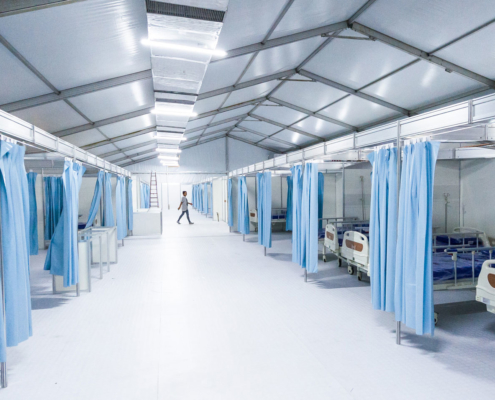Moving the Needle on Healthcare Cost Containment & Reform
/0 Comments/in Blog, Blog: Healthcare, Blog: Healthcare Transparency, Blog: Medicaid, Featured, Healthcare /by Editorial StaffToday, Pioneer Institute submitted recommendations to the Commonwealth of Massachusetts’ Special Senate Committee on Health Care Cost Containment and Reform. Pioneer applauds provisions of the proposed legislation that would reduce emergency room use and re-admissions, expand scope of practice, and embrace telemedicine. The Committee should also be commended for looking to other states’ accomplishments in this area.
But the current bill raises some concerns. In some instances, we believe it diminishes the potential for greater cost savings by adding unnecessary regulatory burdens. The projected savings relative to 2020 spending are quite modest, at less than 0.2 percent. The Medicaid buy-in program as it is presented is a radical change from the existing program structure – it will require more elaboration and analysis, as it is unclear what the impact of this proposal will be on MassHealth and providers across the Commonwealth. Pioneer also has concerns that the bill could lead to harmful unintended consequences, such as the collapse of the merged private insurance market. We hope the Legislature addresses these issues, but this bill starts an important healthcare cost conversation in Massachusetts, and we commend the Senate for taking the lead in this effort. Read Pioneer’s full letter to the Committee.
Get Updates On Our Healthcare Research and Events!
Related Research

A Closer Look at the Healthcare and Social Assistance Industry in Massachusetts

Valuing Life-Saving Drugs: What is the Price of Life and Who Decides?

Study: Massachusetts Should Retain Additional Healthcare System Flexibility Granted During Pandemic

A Rush to Judgment on Alzheimer’s Drug

Study Calls for Better Reporting on Impact of COVID-19 in Eldercare Facilities

Massachusetts Should Disclose More Information about Its Recent Reduction in the Official Count of Long-term Care Deaths

Doctor Heal Thyself: Insider’s Prescription For Healthcare Reform

New Analysis: ICER Framework Ignores Patient Preferences, Innovation & Societal Benefits in Evaluating Cost-Effectiveness of New Cancer Treatments

Pioneer Institute’s 2021 Government Transparency Resolutions: Sunshine Week Edition

ICER Proves Its Lack of Business Acumen, Again
Study: Massachusetts Should Embrace Direct Healthcare Options

Hockey Sidelined Again

Survey: Consumers Want Healthcare Price Information, But Few Realize It’s Available

Study: Growth of Antibiotic-Resistant Infections Could Have Massive Human, Financial Costs

Getting Nursing Home Care Right




